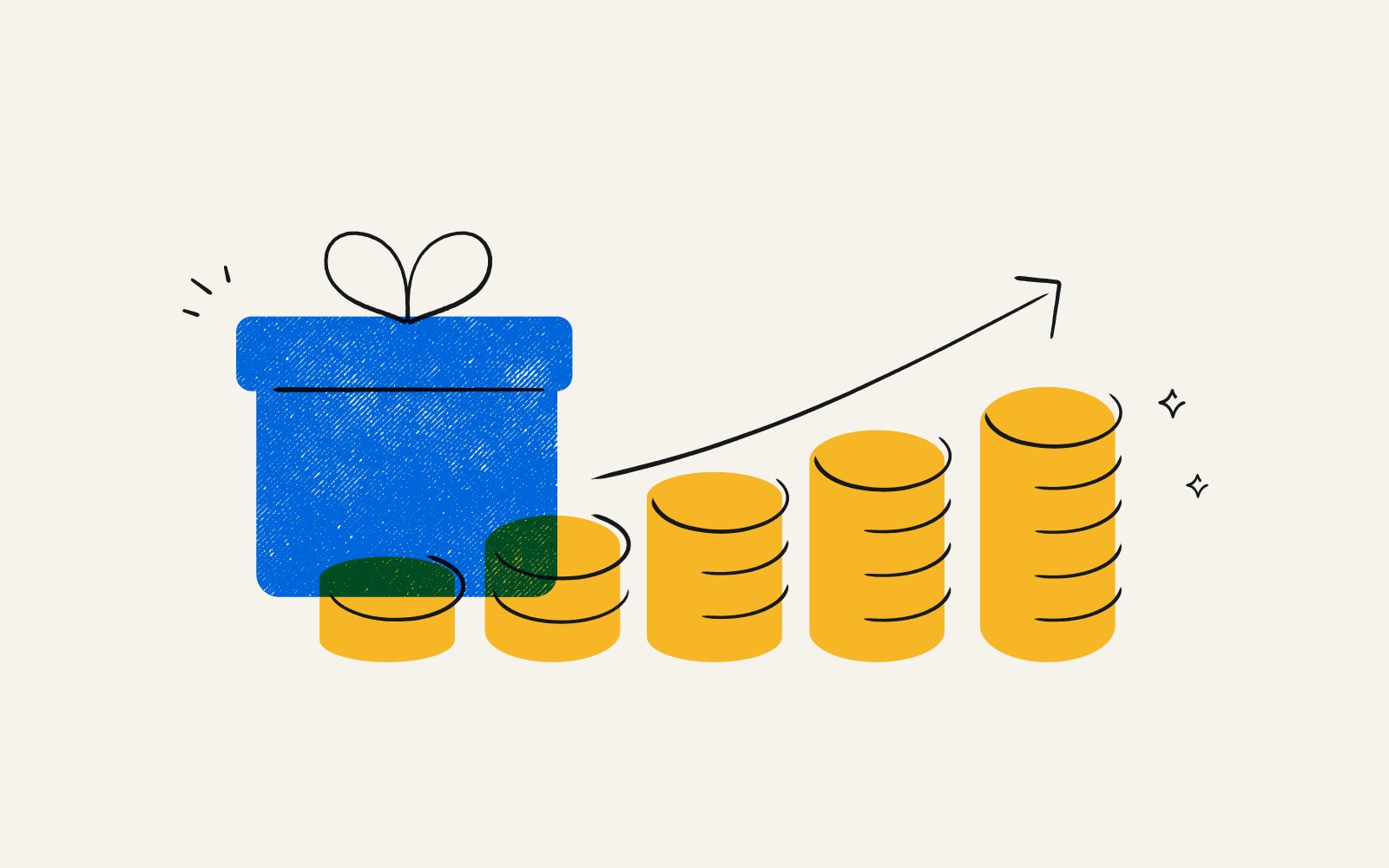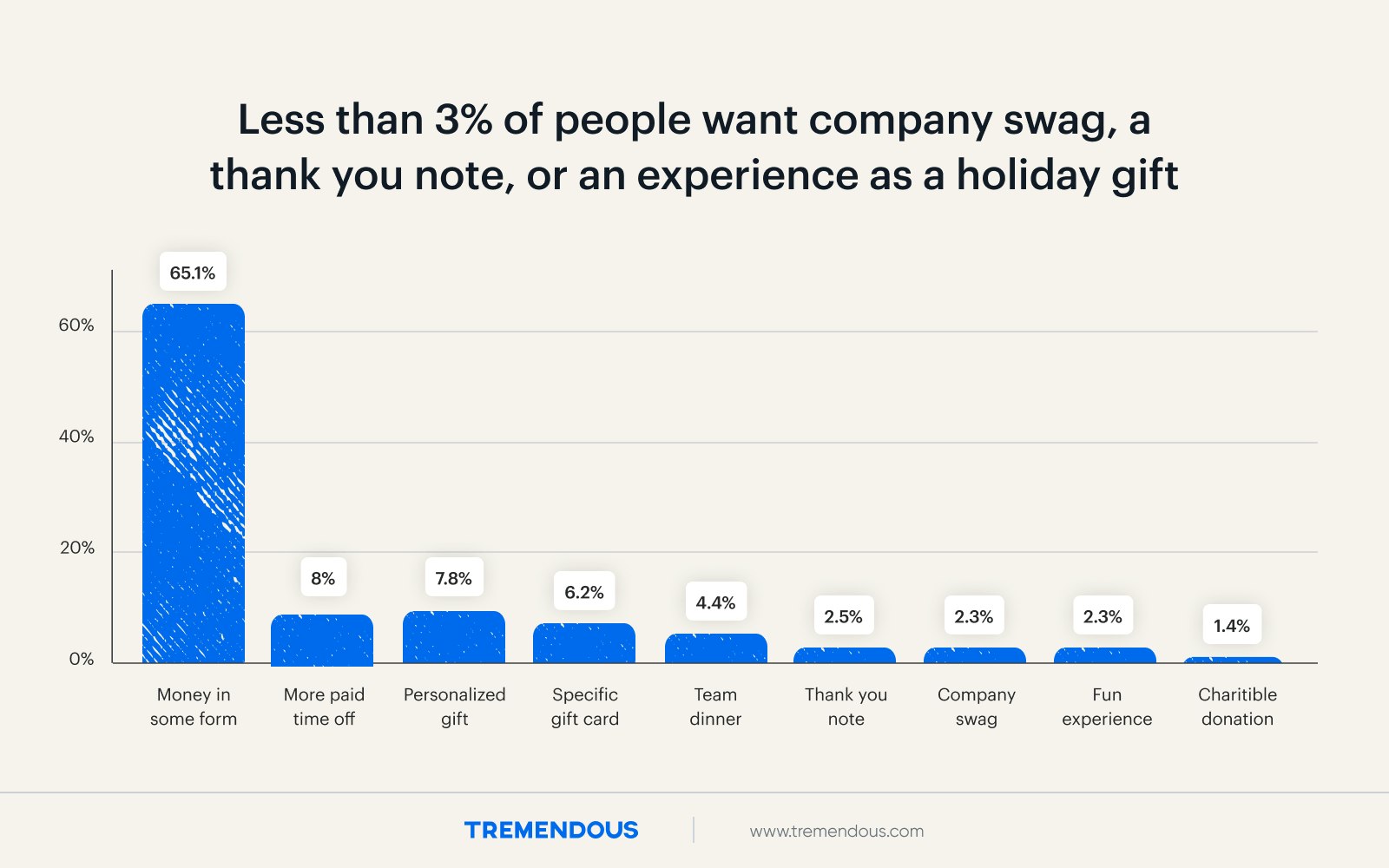15 sales incentive ideas for team success in 2026
By Mindy Woodall & Zach Links●8 min. read●Dec 15, 2025

Quotas motivate sales reps to meet expectations, but sales incentives push them to go the extra mile.
The structure and rewards of a sales incentive program range from an all-inclusive vacation for selling the most of a specific product, to a $50 gift card for booking a certain number of meetings. Finding the right mix for your team starts with understanding your options.
Learn more about how incentives work, including monetary and non-monetary rewards, and use these 15 incentive ideas to develop an effective program for your sales team.
What is a sales incentive?
A sales incentive is any reward given to a salesperson for achieving a goal or outcome, whether that’s upselling or closing the most deals on a team.
For proof of the effectiveness of sales incentives, look no further than SparkPlug. The incentive software company has seen several of its clients achieve a 50x ROI on incentives in the form of increased sales and a reduction in quarterly turnover.
Companies typically offer sales incentives in addition to the standard base pay and commission-based pay structure, rather than as a replacement.
Your sales incentive program will look different depending on your company goals and the preferences of your employees.
Types of rewards used in sales incentive programs
There are two primary types of incentives: monetary and non-monetary. Both reward types have their benefits, but you can also use them together to maximize impact.
Monetary incentives
Monetary incentives include direct financial rewards like cash bonuses. These rewards directly link employee performance to earnings, which provides a clear and immediate financial benefit. Monetary incentives can also include gift cards, spot bonuses, and SPIFs.
Sales Performance Incentive Funds (SPIFs) motivate sales representatives to hit specific KPIs or quotas in a set period of time. A well-structured program can deliver serious results for your company. A study on the effects of incentives on workplace performance found that they increased performance by an average of 44% for long-term programs.
Non-monetary incentives
One of the easiest and most common types of non-monetary incentives is employee recognition. Recognizing employees can be cost-free and have a big impact. A Workhuman/Gallup research report found that employees with effective recognition systems were 2.5x more likely to be engaged at work.
Non-monetary incentives also include tangible prizes — everything from t-shirts to toasters. But while tangible prizes are often cost-effective, we conducted a survey that found employees vastly prefer money.

15 ideas for sales incentives to motivate your team
There are a number of different ways to incentivize your sales team to do their best work.
Bear in mind that what works for one team may not work for another: the right sales incentive depends on your team's preferences and needs.
1. Physical gifts
Conduct surveys at the start of the business quarter to learn what your sales reps are interested in, whether it’s electronics, kitchen gadgets, or artisan snacks. Think beyond standard branded swag.
2. Gift cards
A study in SSRN found that tangible rewards, including gift cards, can be even more effective than cash rewards. But giving the same card to every employee may not go over well.
The best way to please everyone is to use an incentives platform where you can include a personalized message and recipients can choose which gift card they want.
3. Experience-based rewards
Experience-based rewards work well as a sales incentive because they benefit from the novelty effect. These incentives also have an added benefit: employees who win are more likely to discuss their experience with coworkers, which can motivate others to win sales contests in the future.
4. Professional development courses, coaching, and conferences
Professional development courses allow salespeople to feel a sense of personal achievement and mastery of a skill. They can also help reps achieve a higher status among their peers, boosting their self-esteem.
5. Concerts and sporting event tickets
Whole-team rewards can create camaraderie among team members that facilitates easier, more frequent collaboration on the sales floor and a better company culture. Concerts and sporting events are great group reward options to encourage performance beyond short-term sales goals.
6. Charitable donations
When people donate to charitable causes, they get that “feel-good” sensation. To make charitable donations as sales incentives more attractive, allow team members to select where the reward funds will go.
7. Wellness stipends and experiences
Sales roles tend to be high-stress. Wellness-based rewards like gym memberships or spa packages can help your company demonstrate its commitment to a healthy workforce.
8. Travel stipends
Travel rewards offer a perfect escape from a demanding sales environment while creating experiences that winners will remember for years. The anticipation of planning a trip can be almost as motivating as the reward itself.
9. More PTO
In our own study, US workers shared that extra PTO is one of their preferred employee rewards. Vacation time ranked higher as an incentive than experiential rewards like team dinners, wine tastings, or other curated events.
10. Flexible work arrangements
Incentives like remote work days, flexible hours, or compressed work weeks acknowledge that work-life balance is increasingly valuable to employees. For some reps, these perks can be even more appealing than monetary options.
11. Premium parking spots or commuter benefits
Reserve the best parking spaces for your top performers or provide generous commuter stipends for public transportation. Little conveniences like close parking spots create a visible status symbol while solving practical problems that employees face every day.
12. Electronic devices and gadgets
Practical options like smartphones and laptops, or more fun options like RC cars, drones, or Bluetooth speakers, appeal to tech-savvy salespeople. Display these items around the office as visual reminders of what top performers can win.
13. Stock options or equity participation
Give top performers a stake in the company's success through stock options, restricted stock units (RSUs), or profit-sharing bonuses. This aligns their personal financial success with company performance, and can be particularly motivating at an earlier-stage startup where every deal counts.
14. Educational reimbursement for family members
Offer reimbursement for direct family members’ college tuition or extracurricular activities. This type of incentive shows an investment in what matters most to your employees outside work.
15. Extra break time and comfort perks
Things like extended lunch breaks, coffee gift cards, or access to a quiet relaxation space make great sales incentives at fast-paced companies where downtime is in short supply.
How to build a successful sales incentive program
There is no one-size-fits-all approach that will work for all companies. Use these building blocks to create a sales incentive plan that delivers results for your organization type and your employee preferences.
Step 1: Clearly define your business objectives
Consider questions like:
What are your company-wide goals?
What revenue targets are you aiming to hit?
What key performance indicators (KPIs) will signal success?
These questions will help to inform the type of incentive plan that makes the most sense for your current priorities.
For example, if you need to offload inventory fast, a SPIF program may make sense for your organization. On the other hand, if you’re struggling after several quarters of low revenue, a more long-term incentive structure, like a commission-based plan, might have the biggest impact.
Step 2: Identify what motivates your sales reps
Think about the incentive structure that will be most effective for your workforce, and the incentive type they’ll respond to best.
Incentive program structure
It may seem reasonable to offer both individual and group-based incentives to ensure performers of all kinds are motivated to achieve ambitious goals. Layering multiple different incentive structures can hurt more than it helps.
To avoid confusing or overwhelming employees, keep the incentive program simple and straightforward.
Incentive types
When deciding which incentives to include in your SPIF program or larger incentive strategy, there are a couple of avenues you can take to identify what appeals most to your frontline workers.
You can conduct a company or location-wide survey to find out what employees prefer, prompting them to fill in their preferred incentive or pick from a list of options. Or you can let them choose their incentive themselves.
Step 3: Set clear, realistic, and attainable targets based on historical data
While stretch goals can be motivating, targets for sales incentives and SPIFs must be realistic based on historical data. If targets feel unrealistic or out of reach, some employees may mentally count themselves out. Revisit past quarterly, monthly, or seasonal sales performance to identify reasonable targets.
Step 4: Design a flexible incentive plan that can adapt
Continuously evaluate your plan's performance and metrics. Be prepared to refine the plan over time to ensure it delivers the intended results.
For example, if your company launches a new product, you might adjust your incentive structure to temporarily offer larger rewards for new item sales. Once the new line is established, you can readjust the incentives back to a more balanced structure across all products.
Step 5: Conduct surveys or interviews to gain valuable feedback
Schedule quarterly or bi-annual reviews of your program. Use feedback from your sales team along with performance data to make adjustments to your incentive program.
Step 6: Incorporate legal and ethical safeguards into your incentive structure
Be aware of tax regulations regarding incentives, such as reporting requirements for non-cash rewards.
Consider ethical implications as well. For example, rewarding individual performance may result in a culture of unhealthy competition, where frontline workers feel a degree of resentment rather than appreciation for coworkers who go above and beyond.
Group incentives can help to distribute rewards more evenly across the workforce. Brands can also incorporate additional incentives and recognition methods that reward employees for things other than sales results.
Step 7: Leverage technology to streamline incentive distribution
Implement an incentives platform to automate reward distribution, provide real-time tracking, and ensure transparent reporting. Look for a solution that offers a wide range of digital reward options, from monetary transfers to gift cards.
Key takeaways
The most effective sales incentive programs combine strategic planning with a genuine understanding of what motivates your specific team. Monetary rewards are a great option, but you should also consider non-monetary incentives like flexible work arrangements and experiential rewards that create deeper engagement.
Ultimately, success comes from finding the right mix of incentives based on employee feedback and careful observation of what drives performance for your company.


